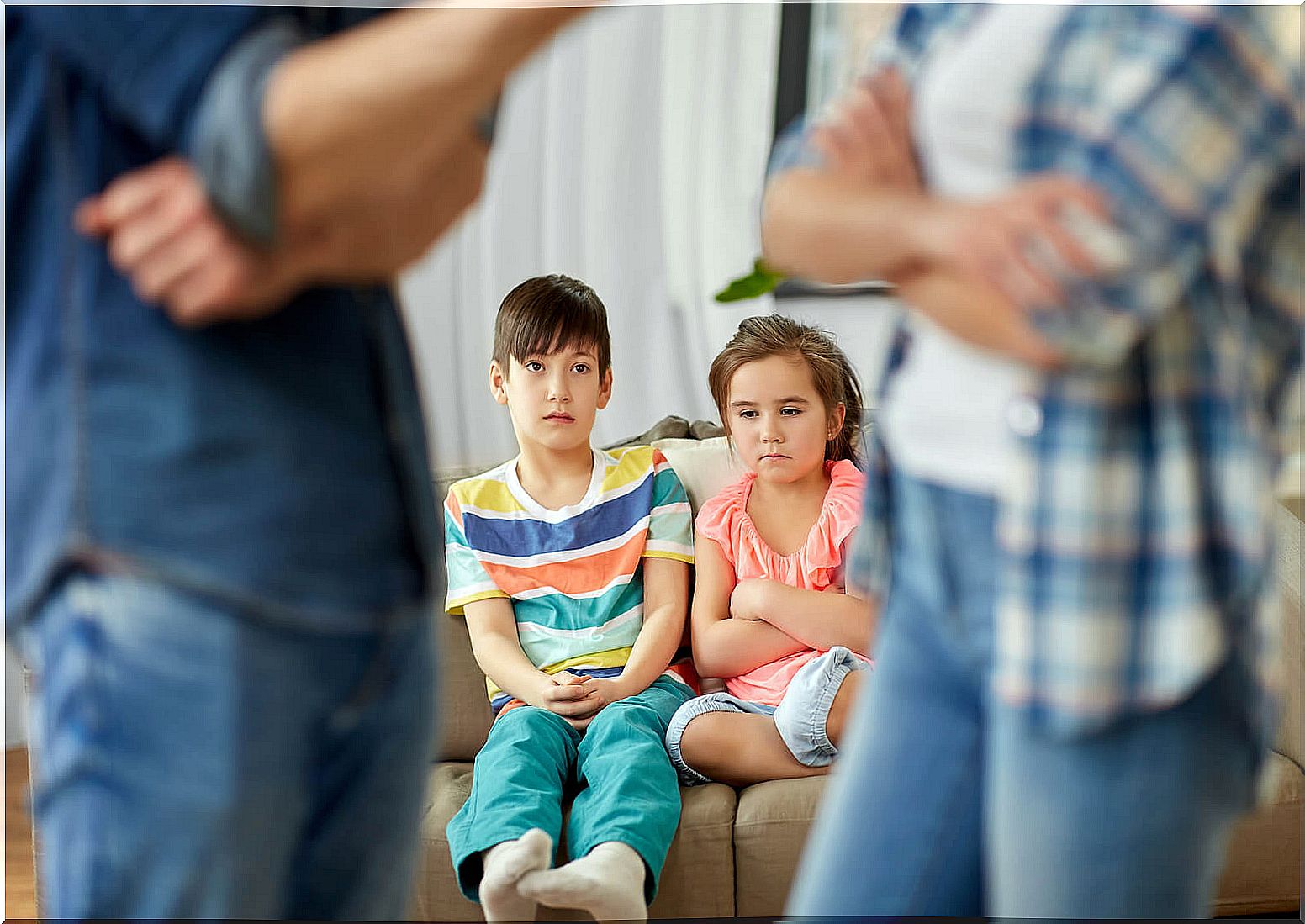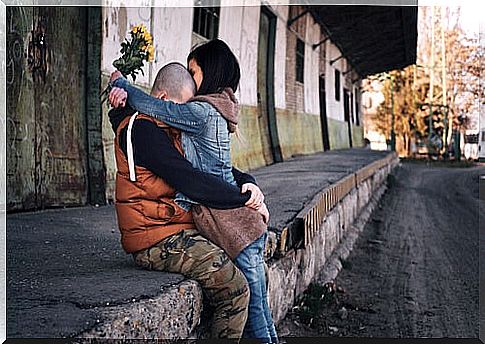Why Is It Important To Reconcile In Front Of The Children?

In our daily life, many times, we go with the automatic pilot activated and we forget that, since we became parents, a pair of eyes observe everything we do and integrate it into themselves. Thus, in all families there are arguments between the parents that the children witness and suffer. However, although they always end up reconciling, the little ones are not usually present before this happy outcome.
It is true that, the next day, they can observe how the dynamics between their reference adults has returned to normal. They will watch as they address each other again lovingly and without difficulty. However, just as they have witnessed the discussion, it is important that we also involve them in conflict resolution. Let’s see why.
How do arguments affect children?
For an infant, his parents are his two main attachment figures. Trust them to provide you with not only love and basic needs, but also structure, security, and guidance. It is always important that parents work as a team with their little ones, as this shows them a solidity that generates confidence and tranquility.

In this way, when parents initiate an argument and their children are present, they suffer, especially when the respect, assertiveness and affection that should always dominate interactions, despite disagreement, do not appear. Thus, seeing the two most important people in your world angry at each other, yelling at each other, or disrespecting each other truly affects them.
- He feels fear, because the two people in charge of his safety and well-being seem upset, at odds, and out of control. The child probably does not know why the argument started or how it will end. This uncertainty can cause you great anxiety.
- He experiences a feeling of guilt, since, often, the little one believes himself responsible for the discomfort of his parents and the fight between them. You may feel that they are angry because he has misbehaved or done something wrong.
- Acquire inappropriate strategies for social interaction. Children learn by imitation; Through what they observe, they create an image of how human relationships work and internalize certain patterns of behavior. Thus, your child can normalize yelling, name calling or indifference as valid communication tools.
It is not always possible to avoid conflict
Obviously, arguing in front of our children is not recommended. It is always preferable to find moments alone in which the couple can discuss and resolve their disagreements without the children being present. In the same way, if something has to be spoken in front of them, it will be necessary to do it with great care and conscience. We cannot get carried away by impulses and we must try to communicate in the most respectful and assertive way possible.
However, parents are also human beings. We are not machines or robots; we cannot always fully control our performances. Additionally, conflicts and setbacks are unplanned and can sometimes arise at inappropriate times. Thus, in all families this unpleasant situation has occurred at some time.

The importance of reconciling in front of the children
There is no need to throw our hands on our heads or blame ourselves over and over for allowing our children to witness an argument. What is necessary is to also reconcile in front of them and allow them to learn from that experience. Most of the time this occurs when children are already asleep or are playing in a different room. However, if we allow them to be present, we will benefit them in different ways.
First of all, they will be reassured when they see that their two reference figures are fine with each other again. On the other hand, we teach them (by example) that it is normal for conflicts and discrepancies to arise, but that these do not imply a lack of love or the end of the relationship. We show them how to deal with disagreements and resolve conflicts with others.
But above all, we allow them to witness such relevant acts as the humility to apologize, the nobility to accept them and the displays of affection typical of reconciliation. So, if it has not been possible to prevent the discussion from taking place in the presence of the children, reconciling in front of them will always be an excellent alternative.










